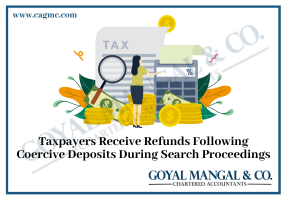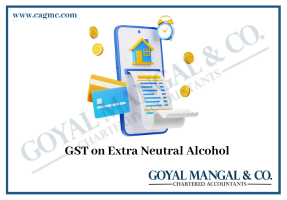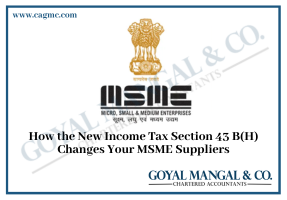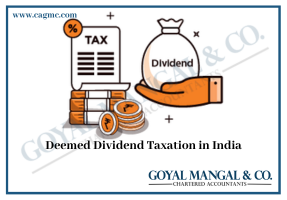
Wondering if you have to charge and collect Goods and Services Tax (GST) on the rent you receive? GST treatment differs between residential and commercial tenancies. On the other hand, if you are running a business, then paying rent is one of those prominent expenses and you may want to know your eligibility for input tax credit (ITC) on GST paid on rental costs. In this article, we will discuss the GST on rent.
| Table of Contents |
GST on rent
In a move that would increase the cost of offering corporate guest houses or staff accommodation by GST-registered companies, the GST Council has revoked the exemption granted earlier for renting residential units under the GST regime.
Following the amendment, which was announced after the 42nd GST Council meeting on 13 July 2022 and came into effect on 18 July 2022, GST-registered tenants will be liable to pay GST at the rate of 18%, regardless of whether the landlord is or is not registered for GST if the unit is let for business purposes. Owners or partners in GST-registered businesses will not have to pay GST on rent if they take the rented accommodation for their personal use.
Pre-GST scenario concerning tax on rental income
During the pre-GST era, a landlord had to obtain service tax registration if his total taxable services (including rental income from all properties) exceeded Rs 10 crore. As long as the rental income (from all rented properties) does not exceed Rs 10 lakh per annum, the landlord will not be attracted to service tax.
In the previous tax regime, service tax would have been levied on commercial properties that were rented out. This also applies if the residential property is used for commercial purposes. Service tax was levied at 15% of the rent for commercial properties. In addition, the income from the rental of residential properties was exempted from service tax.
Does rental property attract GST?
Under the GST Act, the lease of immovable property would be treated as a supply of services. However, GST will only apply to certain types of rent such as:
- When the property is provided for lease, rental, easement, or permission to use
- When any property is let (or leased), including commercial, industrial, or residential property for business (whether in whole or in part)
This type of rental is considered a supply of services and would therefore be subject to tax. Any rented residential property for residential purposes is exempt from GST. Any other type of lease or rental of immovable property for business would be subject to GST at 18% as it would be considered a supply of service.
Who registers when the property is rented to businesses?
A taxpayer who earns more than the exempt threshold will have to register under GST and pay taxes. So if you have given your property to the business then it is taxable. If you earn business income, including rent and any other exempt income above Rs 20 lakh per annum, you will need to register for GST.
The threshold limit for claiming GST for those providing only services is Rs 20 lakh, higher than the service tax limit of Rs 10 lakh. As a result, many landlords – who were covered by the service tax regime, are now at ease up to the extra Rs 10 crore earned.
GST treatment if the property is let for commercial purposes
- All business premises that are let will be subject to GST at 18% of the rateable value and the rent will be treated as a taxable supply of service.
- If a registered charitable trust or religious trust owns and manages a religious place open to the public, it is exempt from GST. This can only happen if –
- The rent of these rooms is less than Rs. 1000 per day
- Rent for shops and other premises for business is less than Rs 10,000 per month
- The rent of community halls or any open space is less than Rs 10,000 per day
Residential property
- If the landlord is registered under GST – It doesn’t matter and no GST applies.
- If the tenant is registered under GST, they do not pay GST if they are let to a private person or for personal use.
- 18% GST on the rental of a residential unit if it is rented to a business entity.
GST on rent and rental income
Please note that GST on rent and GST on rental income is different. GST on rental income applies when the landlord receives an annual rental of 20,000,000 rupees and effectively becomes liable to pay GST on rental income.
GST on rent, on the other hand, is the tenant’s tax liability if they are a GST-registered entity and use the residential property for business purposes. In simpler terms, GST on rental income is paid by the landlord, while GST on rent is paid by the tenant.
This also means that in a scenario where a residential property is let out for business purposes to a GST-registered person and the GST-registered lessor earns an annual rent of Rs 20 lakh, both the lessor and the lessee will have to pay 18% GST, with their respective responsibilities GST is 36%.
Final words
Rental of commercial properties have never been exempted from GST since the inception of GST. So if the commercial property rental service provider is a registered person, then he would charge GST on the tax invoice.







